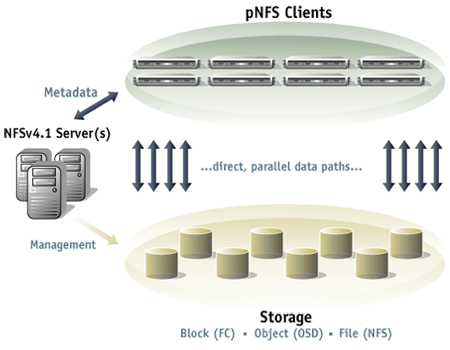Lots of sites today have JavaScript running that connects to the site and keeps the connection open for a long time (or just doing very frequent checks if there is updated info to get). This to such an wide extent that people have started working on a better way. A way for scripts in browsers to connect to a site in a TCP-like manner to exchange messages back and forth, something that doesn’t suffer from the problems HTTP provides when (ab)used for this purpose.
Websockets is the name of the technology that has been lifted out from the HTML5 spec, taken to the IETF and is being worked on there to produce a network protocol that is basically a message-based low level protocol over TCP, designed to allow browsers to do long-living connections to servers instead of using “long-polling HTTP”, Ajax polling or other more or less ugly tricks.
Unfortunately, the name is used for both the on-the-wire protocol as well as the JavaScript API so there’s room for confusion when you read or hear this term, but I’m completely clueless about JavaScript so you can rest assured that I will only refer to the actual network protocol when I speak of Websockets!
I’m tracking the Hybi mailing list closely, and I’m summarizing this post on some of the issues that’s been debated lately. It is not an attempt to cover it all. There is a lot more to be said, both now and in the future.
The first versions of Websockets that were implemented by browsers (Chrome) was the -75 version, as written by Ian Hickson as editor and the main man behind it as it came directly from the WHATWG team (the group of browser-people that work on the HTML5 spec).
He also published a -76 version (that was implemented by Firefox) before it was taken over by the IETF’s Hybi working group, who published that same document as its -00 draft.
There are representatives for a lot of server software and from browsers like Opera, Firefox, Safari and Chrome on the list (no Internet Explorer people seem to be around).
Some Problems
The 76/00 version broke compatibility with the previous version and it also isn’t properly HTTP compatible that is wanted and needed by many.
The way Ian and WHATWG have previously worked on this (and the html5 spec?) is mostly by Ian leading and being the benevolent dictator of what’s good, what’s right and what goes into the spec. The collision with IETF’s way of working that include “everyone can have a say” and “rough consensus” has been harsh and a reason for a lot of arguments and long threads on the hybi mailing list, and I will throw out a guess that it will continue to be the source of “flames” even in the future.
Ian maintains – for example – that a hard requirement on the protocol is that it needs to be “trivial to implement for amateurs”, while basically everyone else have come to the conclusion that this requirement is mostly silly and should be reworded to “be simple” or similar, that avoids the word “amateur” completely or the implying that amateurs wouldn’t be able to follow specs etc.
Right now
(This is early August 2010, things and facts in this protocol are likely to change, potentially a lot, over time so if you read this later on you need to take the date of this writing into account.)
There was a Hybi meeting at the recent IETF 78 meeting in Maastricht where a range of issues got discussed and some of the controversial subjects did actually get quite convincing consensus – and some of those didn’t at all match the previous requirements or the existing -00 spec.
Almost in parallel, Ian suggested a schedule for work ahead that most people expressed a liking in: provide a version of the protocol that can be done in 4 weeks for browsers to adjust to right now, and then work on an updated version to be shipped in 6 months with more of the unknowns detailed.
There’s a very lively debate going on about the need for chunking, the need for multiplexing multiple streams over a single TCP connection and there was a very very long debate going on regarding if the protocol should send data length-prefixed or if data should use a sentinel that marks the end of it. The length-prefix approach (favored by yours truly) seem to have finally won. Exactly how the framing is to be done, what parts that are going to be core protocol and what to leave for extensions and how extensions should work are not yet settled. I think everyone wants the protocol to be “as simple as possible” but everyone has their own mind setup on what amount of features that “the simplest” possible form of the protocol has.
The subject on exactly how the handshake is going to be done isn’t quite agreed to either by my reading, even if there’s a way defined in the -00 spec. The primary connection method will be using a HTTP Upgrade: header and thus connect to the server’s port 80 and then upgrade the protocol from HTTP over to Websockets. A procedure that is documented and supported by HTTP, but there’s been a discussion on how exactly that should be done so that cross-protocol requests can be avoided to the furthest possible extent.
We’ve seen up and beyond 50 mails per day on the hybi mailing list during some of the busiest days the last couple of weeks. I don’t see any signs of it cooling down short-term, so I think the 4 weeks goal seems a bit too ambitious at this point but I’m not ruling it out. Especially since the working procedure with Ian at the wheel is not “IETF-ish” but it’s not controlled entirely by Ian either.
Future
We are likely to see a future world with a lot of client-side applications connecting back to the server. The amount of TCP connections for a single browser is likely to increase, a lot. In fact, even a single web application within a single tab is likely to do multiple websocket connections when they re-use components and widgets from several others.
It is also likely that libcurl will get a websocket implementation in the future to do raw websocket transfers with, as it most likely will be needed in a future to properly emulate a browser/client.
I hope to keep tracking the development, occasionally express my own opinion on the matter (on the list and here), but mostly stay on top of what’s going on so that I can feed that knowledge to my friends and make sure that the curl project keeps up with the time.

(The pictured socket might not be a websocket, but it is a pretty remarkably designed power socket that is commonly seen in China, and as you can see it accepts and works with many of the world’s different power plug designs.)





